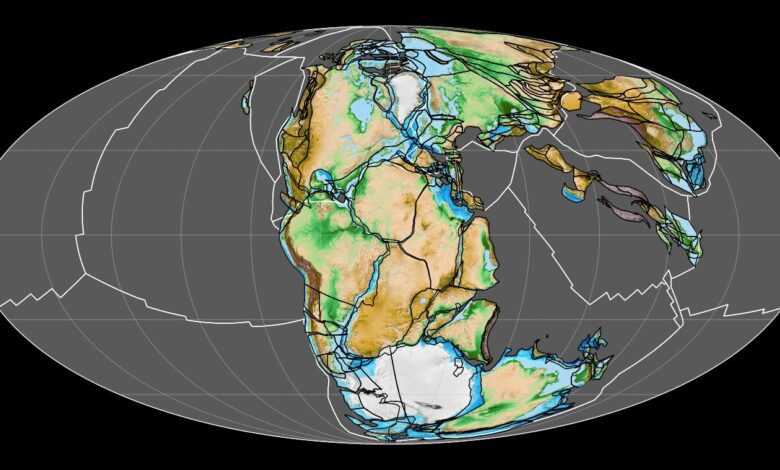A murder case dating back 390 million years is finally solved, the killer is still out there
It was discovered that there are unsettling similarities between the current condition and the catastrophe that wiped out the marine life 390 million years ago.

The enigma surrounding the disappearance of a group of marine species from the ancient supercontinent Gondwana may have finally been answered by the scientists.
From around 550 million years ago until about 180 years ago, Gondwana and Laurasia were part of a supercontinent. Today’s South America, Africa, Arabia, Madagascar, India, Australia, and Antarctica were all part of Gondwana.
A murder mystery that dates back 390 million years
The so-called Malvinoxhosan biota, a historic clade of aquatic animals, is thought to have vanished from Gondwana over a five-million-year span. For generations, the reason behind their departure remained a mystery.
Currently, a recent study has blamed climate change. The study, which was published on October 13 in the journal Earth-Science Reviews, discovered that the extinction of the group of marine mammals was caused by a sharp decline in sea levels brought on by climate change.
The study’s lead author Cameron Penn-Clarke described it as a “murder mystery that dates back 390 million years.”
Climate change: The culprit is still alive
The researchers, who reanalyzed hundreds of fossils from the Malvinoxhosan biota, concluded that although the water level drop was not the primary cause of their demise, it was the catalyst for climate changes to which they were unable to adapt.
The sea level drop broke “circumpolar thermal barriers,” or ocean currents surrounding the South Pole, allowing warmer equatorial waters to mix with colder southern seas.
However, the biota of Malvinoxhos was designed to live in chilly seas.
They eventually disappeared, which caused the ecosystem surrounding the South Pole to “completely collapse”.
“This research is important when we consider the biodiversity crisis we are facing in the present day,” Penn-Clarke stated.
“It demonstrates the sensitivity of polar environments and ecosystems to changes in sea level and temperature,” he added. “Any changes that occur are, unfortunately, permanent.” It was discovered that there are unsettling similarities between the current condition and the catastrophe that wiped out marine life from the South Pole millions of years ago.
You might also be intersted in – Both ‘Nithari serial murders’ accused acquitted by Allahabad HC after 17 years



